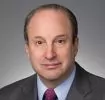Overview
The 2010 elections will soon be over when the final recounts are finished, but the outcomes will result in a more business-friendly environment in Congress and in state governments, as Republicans push for lower taxes and less government spending and regulations. In addition, the environment for congressional redistricting and the next presidential campaign is significantly more Republican-friendly with 29 Republican governors and 24 legislatures now in Republican hands, with another five with divided control. Republicans will have unchallenged control of the design of about 170 congressional districts next year after the Census releases 2010 population data, while Democrats will get to draw about 70 districts. About 200 more districts will be created through participation by both parties or by through non-partisan panels.
While the Tea Party Express did not gain the victories it anticipated — and some say cost Republicans seats in Nevada, Colorado, Delaware, and Washington state — there is no question that this movement was a powerful force in energizing voters for Republican candidates and resulted in a huge Republican takeover in the House. The 33 senators up for re-election in 2012 (22 of whom are Democrat-held seats versus nine Republicans and two Independents) will be very mindful of this constituency as they cast votes on taxes, spending, and health care. Of the 10 Senate races with a Tea Party candidate, five were elected and one race is still undecided. In the House, Tea Party candidates won 41 of their 130 races, with seven still undecided. The Tea Party movement is expected to be a factor in the Republican presidential primaries; however, several of the presidential possibilities, including former governors Mike Huckabee (Ark.) and Sarah Palin (Alaska), Governor Mitch Daniels (Ind.), Governor Chris Christie (N.J.), and Sen. Jim DeMint (S.C.) can lay claim to sharing their philosophy and focus on limited government. While the Tea Party (which some have given the acronym "Taxed Enough Already") candidates may have been too extreme for many Americans, there is no question that their philosophy of lower taxes, cutting the deficit, and less government interference is welcome news to most businesses.
Foley's Government & Public Policy team shares its insight on the impact of this election on our business clients in the following update, from the federal and Florida, Illinois, and Wisconsin perspectives.
Congressional Overview
Senate
The Senate will return in January with Democrats holding
at least 53 seats and a reduced majority, but they will still have
the power in the chamber. The Republican pickup of six seats will
put them in a better position, though they gain no more power to
pass legislation emerging from the House, but have an increased
ability to block any Democratic initiatives under the threat of a
filibuster. The Democratic leader, Sen. Harry Reid (D-Nev.), held
on to his seat and returns to his post to lead in the next
Congress. During the lame duck session in mid-November, the Senate
will be looking to close out the work from this year in terms of
spending and taxes, while other issues will likely fall by the
wayside. Sen. Reid did talk about a lame duck session vote on an
immigration bill (DREAM Act) during the latter days of his
re-election campaign, but it is unlikely that he will have the
votes to move such a measure.
House
The Republican takeover of the House of Representatives with a wide
margin of 22 seats (currently 240-186 with nine races outstanding)
will have an immediate effect, even though the GOP will not take
over the speaker's gavel until January. During the upcoming
lame duck session, the election results mean that each returning
member of Congress will look at the votes in the session as the
first ones of the 2012 election and they will be held accountable
for them. There are several scenarios that could play out during
the lame duck, but it is impossible at this time to accurately
handicap them. The key issues will be funding the government and
taxes, which are poised to skyrocket in the new year.
The path of least resistance for the House and Senate is to pass a longer continuing resolution to fund the government until the end of the fiscal year or a shorter-term one expiring in February and give the responsibility for the long-term to the Republicans. Another path would be to combine the 13 appropriations bills into one large omnibus bill and pass that measure for the rest of the fiscal year. This bill could contain a number of related measures, including a stalled tax extenders bill, provisions to extend parts of the expiring individual tax cuts, and other issues like the estate tax. However, the risk is that members of Congress may believe this type of bill would be an overreach and could be cluttered with earmarks and other spending efforts, which would seem to be against the recently expressed will of the voters. Members of Congress who were just re-elected will have to cast these votes on spending and taxes side by side with many of their defeated colleagues and with the knowledge that their political opponents are carefully watching.
As for the next Congress, much of the plan for the House Republicans was laid out in their Pledge to America document released a month before the election. Rep. Paul Ryan (R-Wisc.), the likely House Budget Committee chairman, described the Republican approach recently as "restoring the foundations of growth: low taxes; sound and honest money; fair, predictable and reasonable regulations; and, of course, spending cuts and reforms." While hot button issues like health care reform and financial services are on the way, the House must first propose and pass legislation pertaining to the issues of spending, taxes, and job creation that propelled them to power on November 2. That is where the nation wants answers and action, and other issues will have to wait while these priorities are addressed.
Patent
Reform/Intellectual Property
There is still a possibility of patent reform being folded
into a one of the larger must-pass bills that will be considered in
the lame duck session. Both chambers have their own version of the
patent reform, and if differences between the two could be
reconciled informally, a compromise version could emerge for a vote
this Congress. This has happened to intellectual property
legislation in the past and also could include provisions dealing
with false marketing, fee increases at the USPTO, and legislation
dealing with the fee diversion issue.
The House Judiciary Committee will most likely be chaired by Rep. Lamar Smith (R-Texas). If patent reform fails in the lame duck, it could be resurrected in the next Congress. Rep. Smith introduced the first patent reform bill three Congresses ago. Also, intellectual property issues are currently held at the full committee level. Whether the chairman folds them into an intellectual property subcommittee remains to be seen. Look for more oversight of the USPTO by both the House Judiciary and the House Oversight and Government Reform Committees, whose likely incoming Chairman, Rep. Darrell Issa (R-Calif.), holds more than 30 patents.
Energy
The 2010 mid-term elections have the potential to usher in
a new national dialogue on energy policy. There is a broad
consensus that energy remains a top national priority. But the
election results suggest that there will be a significant
reordering of the potential proposals that will receive serious
consideration. The Senate Energy Committee will still be chaired by
Sen. Jeff Bingaman (D-N.M.), a strong proponent of renewable
energy, but if Senator Lisa Murkowski (R-Alaska) is victorious and
retains her ranking status on the Energy Committee, she also will
be a strong proponent of oil and natural gas. The House Energy and
Commerce Committee chairmanship is still in doubt with current
ranking member Rep. Joe Barton (R-Texas) having been term limited
out of the position unless he receives a waiver from the committee.
If he is unsuccessful in this quest, the position could be taken by
either Rep. Fred Upton (R-Mich.), Rep. Cliff Stearns (R-Fla.), or
Rep. John Shimkus (R-Ill.). All of these members have a more
pro-business outlook than the Democratic leadership, which will
result in less regulation and greater emphasis on traditional
energy production. The House Science & Technology Committee,
which funds and oversees energy research and development, will be
chaired by Rep. Ralph Hall (R-Texas). This shift could result in
more funding for traditional oil and gas exploration and nuclear
development rather than the renewable energy and alternative
fuels.
It is clear that initiatives such as cap and trade and the renewable energy standard will be politically problematic, but there will still be support for renewable energy and energy efficiency initiatives. But now there also will be renewed interest in fossil fuels and nuclear energy. Republicans and Democrats will have to find common ground, so all energy options will be on the table more so than in the first two years of the Obama administration.
There also may be more balance in the approaches to energy policy that weigh funding for research and development against tax incentives for commercialization of energy technology and focuses on the role of small business in the energy economy. So the election seems likely to refocus not only the policy approaches on energy but also the legislative strategies. What is unlikely to change is the emphasis on the importance of energy in the nation's economy, on future job creation, and on its central role in our national security and infrastructure.
Health
Care
The recently enacted Patient Protection and Affordable Care Act
(PPACA) played a major role in the rise of the Tea Party, which
characterized the law as a government takeover of the
individual's health care. Republicans used the unpopularity of
the law, referred to by opponents as "Obamacare," as a
key campaign advantage, promising to repeal it altogether. Several
conservative Democrats also advertised their opposition to the bill
in an attempt to maintain their congressional seats. Likely Speaker
of the House John Boehner (R-Ohio) immediately confirmed intentions
to repeal health care as a top GOP priority in the 112th
Congress.
Three states voted on constitutional amendments to ban enforcement of the health reform law's individual mandate, easily the most unpopular provision of the PPACA. Oklahoma approved state question 756 by 65 to 35 percent, and Arizona passed Prop 106 by 55 to 45 percent. Amendment 63 in Colorado was narrowly defeated by 52.8 to 47.1 percent. If the courts determine that the PPACA is constitutional, the states cannot prevent its implementation. However, the presence of the questions on the ballot likely drew conservative voters to the polls, improving the chances of electing Republicans to other posts.
Financial
Services
The main focus for the upcoming lame duck session of Congress will
be consumed by the twin issues of taxes and spending, which is not
surprising given the role that these two issues played in the
recent election.
It is estimated that U.S. taxpayers will be hit with $4 trillion in tax increases over the next decade if all the tax issues are untouched, combined with inaction on the 2001 and 2003 Bush tax cuts affecting marginal rates. According to a report by to Republicans on the House Ways and Means Committee, next year's increase alone would amount to more than $200 billion.
If Congress does nothing on taxes in the lame duck session, by the end of the year:
- The estate tax will return to pre-2001 levels, socking estates worth more than $1 million with a 55-percent tax rate
- The capital gains tax on most assets will jump from 15 percent to 20 percent
- Dividends currently taxed at 15 percent will be taxed as to individual tax and could increase to rates as high as 39.6 percent
- The Alternative Minimum Tax will hit the middle class for 2010 tax returns
- A number of tax breaks that expired last year, including credits for research and development expenses and relief for college tuition, will not be available for 2010 tax returns
Congressional Democrats decided to punt on a vote to extend the Bush 2001 and 2003 tax cuts in the weeks just prior to the election fearing that such a vote would imperil a number of the members just before the election. Now, with many of these same members coming back to spend their last few days as representatives, they may not ever be asked to weigh in on that very issue. Congressional inertia on the tax-cut extension could push action on the issue into January and the 112th Congress, setting up the first face-off on a major issue between Republicans and Democrats as all taxpayers will see higher taxes in the new year.
Another top issue is that of the estate tax, which expired in January 2010, but will return in full force at pre-2001 levels one year later, which means estates worth more than $1 million, will be hit with a tax that could be as high as 55 percent. Democratic leaders and the president would like to resuscitate the 2009 law, which placed a 45-percent tax on estates exceeding $3.5 million. However, a bipartisan proposal by Sens. Jon Kyl (R-Ariz.) and Blanche Lincoln (D-Ark.), which would have increased those figures to 35 percent and $5 million respectively, has drawn support and muddied the waters for a deal. In the last session prior to the election, Democratic leaders eyed putting an estate-tax fix in legislation extending the middle-class tax cuts enacted under President Bush. The levy would be indexed for inflation so fewer people would become ensnared by it. As noted earlier, the tax-extension vote was delayed and may not come until January.
Congress also is quite behind on the annual appropriations process, with the government operating under a temporary spending plan until early December.
Financial reform legislation will be a topic that will come up in the beginning of the new Congress in January, with the main focus on oversight of the implementation of the Dodd-Frank reform bill passed in July 2010. A story in the November 3rd Congressional Quarterly said that Rep. Spencer Bachus (R-Ala.) is poised to take over the House Financial Services Committee chairmanship in January, replacing the current Chairman Rep. Barney Frank (D-Mass). Rep. Bachus' elevation was not a sure thing as some of his Republican colleagues had expressed reservations about his resolve on financial markets issues.
Labor
Labor's agenda, which was going nowhere before the election,
will be stopped in its tracks with the results of the election. The
Employee Free Choice Act is dead. With a Republican majority in the
House, it is unlikely to pass in either the House or Senate, where
it could not obtain anything approaching 60 votes for cloture in
the old Congress. Similarly labor's effort to redefine
independent contractors as employees is unlikely to pass in the new
Congress. In fact, with a reduced majority in the Senate, the Obama
administration will have a hard time getting pro-labor nominees
confirmed for the National Labor Relations Board or Federal Labor
Relations Authority.
Florida
Florida has been hit hard by the double impact of national
recession and the harmful effects of this summer's BP oil
spill. With more than 11-percent unemployment statewide, the
Republican-dominated landscape in Florida promises tax cuts, the
attraction of new business, and the creation of more jobs. People
who are out of work and losing their homes will have hope that
things will change for the better. This election was so important
to the business community, not only for those above reasons, but
because the seeds of Tuesday's Republican landslide will take
root in the future stability of those more intangible things like
redistricting, the state's economy, our nation's direction
and, as importantly, national and state border security.
Florida's Chamber of Commerce spent $5.5 million supporting
conservative candidates and fighting ballot initiatives just like
the "Hometown Democracy." Technically known as Amendment
4, the initiative would have required a local referendum on
developments that changed comprehensive land-use plans. It was
defeated easily by a majority of 67 percent. Additionally, and in
great news for our clients, we expect Governor-Elect Rick Scott,
along with the Republican-led Legislature, to encourage private
business' role in government. They recognize that government
certainly does not have all the answers and, clearly, some aspects
of business are better run by a pro-business model. We expect to
see an environment where our clients can have a state government
that is committed to lessening regulations and providing more
incentives to grow and provide economic opportunity for
Floridians.
Illinois
Jobs. Jobs. Jobs. The Illinois top-of-the-ticket races
(gubernatorial and Senate) make it pretty clear, and perhaps to a
somewhat lesser extent, that local jobs and the broader economy,
were top of mind for Illinois voters. Incumbent Gov. Pat Quinn (D)
defeated downstate conservative State Sen. Bill Brady (R) by more
than 19,000 votes. The very close election came to an end on
November 5th when Sen. Brady conceded the race. Gov. Quinn has
talked about raising individual income taxes to help plug a $13
billion to $16 billion deficit in Illinois' budget. In the
state Capitol, Democrats remain dominant. Illinois Speaker of the
House, Michael Madigan, retained his majority in the state House of
Representatives and will, therefore, retain his position in
Springfield. Democrats also control the state Senate by an 11-seat
margin. At the federal level, Illinois Republicans fared better
with a win at the top of the ticket and at least three new GOP
House members. Moderate Republican and five-term congressman for
Illinois' 10th Congressional District, Mark Kirk, won the U.S.
Senate seat that, until 2008, had been occupied by now-President
Barack Obama. Rep. Kirk, who hails from the Illinois congressional
district that includes the greatest concentration of individual
wealth in the state, comes from a strong (20+ year) Navy background
and is well versed in international themes. The Republican Party
now holds a majority of Illinois' 19 seats in the U.S. House
and could pick up another seat in the state's 8th District in
the northwest suburbs of Chicago. All eyes now turn to
Chicago's mayoral race (which will likely include former
presidential Chief of Staff Rahm Emanuel), scheduled for February
2011.
Wisconsin
In a night of nationwide GOP victories, Wisconsin saw perhaps the
largest swing of all with Republicans regaining control of the
governor's office, state senate, and state assembly. Not only
did they retake control in the Legislature, but they did so with
the type of overwhelming numbers that will make it much easier to
pass their agenda over the next two years. With the GOP controlling
redistricting, the Democrats could face a long road back to power.
Many Wisconsin businesses welcome these results as they open the
door to reversing some of the policies Democrats have pushed
through in recent years. Recently enacted combined reporting is
likely to be changed or repealed. Generally, the incoming
administration of Governor-Elect Scott Walker (R) will look for
ways to encourage businesses to move to Wisconsin and create new
jobs, which may include changing the corporate tax code and
streamlining regulatory burdens. The Department of Commerce will
likely be radically overhauled. Observers expect road funding to
continue to be a priority. State employees will likely face new
requirements to contribute to the cost of their health care and
pensions. It is likely that the Republicans now controlling Madison
also will seek to scale back outgoing Gov. Jim Doyle's
expansion of the Medicaid program in order to help trim an
estimated $3 billion deficit.
The content of this article is intended to provide a general guide to the subject matter. Specialist advice should be sought about your specific circumstances.





